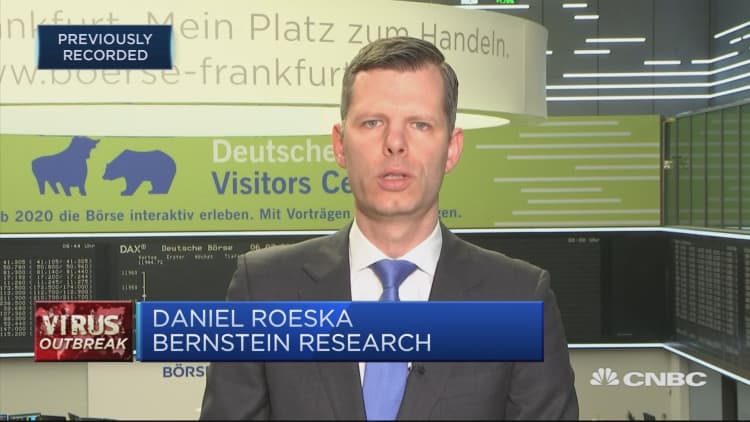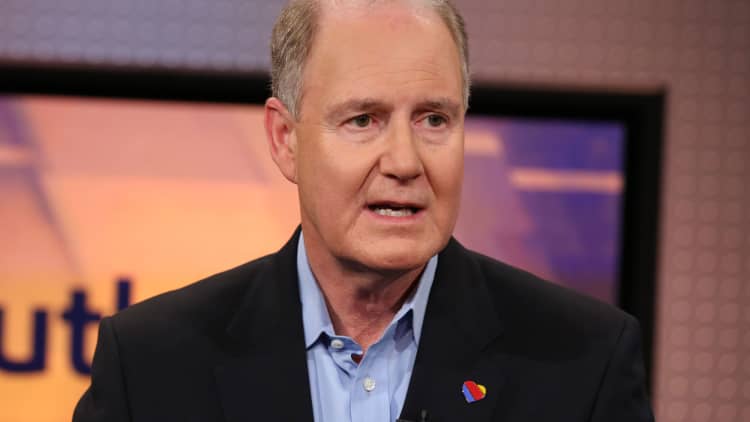The impact the coronavirus crisis is having on airlines is reminiscent of 9/11's effect on the industry, according to one analyst.
Daniel Roeska, senior analyst for European transportation at Bernstein Research, told CNBC's "Squawk Box Europe" Friday that the way the outbreak was weighing on airlines had "a 9/11 feel because the demand-induced shock is not really related to economics."
The International Air Transport Association (IATA) warned on Thursday that airlines could lose up to $113 billion in 2020 because of the coronavirus crisis.
"The hope, of course, is that can reverse once we get greater clarity on the western countries what coronavirus actually will do," Roeska said. "This demand shock is very difficult on the airlines because there's really nothing you can do — you cannot lower prices to stimulate demand at this point in time. So what airlines will do is drastically reduce schedules, start cost restructuring measures and then of course you're looking at who is levered in what way."

He added most large airlines would not need rescuing in the near future, but the likelihood of that happening increased the longer the coronavirus outbreak dragged on.
"For low cost airlines most of the tickets are non-refundable, so as long as those airlines don't agree to hand tickets back, actually the revenues for the next two or three months will not be catastrophic," he said.
Larger legacy airlines were "diminishing by the minute," he warned, but would be bolstered by their financial strength, while the leverage of state-owned flight operators didn't look good.
"If demand drops out but they need to continue paying staff, those airlines will need to start looking for financing pretty soon," he said.
Roeska's take on the airline industry echoed comments made by SouthWest Airlines CEO Gary Kelly, who told CNBC on Thursday the fallout from the coronavirus outbreak "has a 9/11-like feel."
"9/11 wasn't an economically driven issue for travel. It was more fear, quite frankly, and I think that that's really what's manifested this time," he said.

Speaking to CNBC last week, Mark Manduca, associate director of EMEA research at Citi, also drew comparisons between the impacts of the coronavirus and 9/11 on airlines, saying the attacks were one of a few instances in history that had "some sort of resonance" for airlines as they grappled with the outbreak.
According to the U.S. Bureau of Transportation Statistics, it took almost three years for the airline industry to fully recover from the demand shock created by 9/11.
U.S. airspace was shut down following the attacks, with the Federal Aviation Administration temporarily halting all flights, but according to the IATA, the attacks weighed on airline profits for several years.
In a 2006 briefing, the IATA said 9/11 had created a "large temporary impact" that reduced travel demand by more than 31% in the five months following the attacks. It also estimated that airline revenues from domestic U.S. flights fell by $10 billion a year between 2001 and 2006.
U.K. regional airline Flybe announced it had entered administration on Thursday, citing the coronavirus outbreak's impact on demand for travel as one of the reasons for its collapse.
Meanwhile, data published Thursday by analytics firm ForwardKeys showed international flight bookings to Europe were down 79% year-on-year in the final week of February.
Experts have told CNBC they expect people all over the world to cancel or postpone vacations this year due to fears of contracting the coronavirus.


